WANTED: experts in the domain of Smart Mobility
to solve the challenges resulting from the ITEA customer workshop
For the fifth time, ITEA has put the customer in the spotlight during the ITEA international customer workshop. The workshop took place on 12-13 June – during the Kista Mobility Week – and was kindly hosted by Ericsson, for which we are very grateful. This year’s focus was Smart Mobility and - with over 50 participants - it was the biggest workshop that we’ve organised so far. This clearly shows the importance and relevance of the topic of Smart Mobility.
The following companies took part:
| Customer | Industry | SME |
|---|---|---|
| Airbus / EIP-SCC | Airbus | Applanix Corporation |
| Bosch Corporate Mobility Management | Bombardier | Bumbee Labs |
| Drive Sweden | Bosch | Carmenta |
| Ford Otosan | Ericsson | ESI ITI |
| Nordhessen region | Thales Digital Factory | Esri Canada |
| Stockholm city | Tofaş | Eteration |
| Tampere city | Turkcell Technology | Fortran Traffic Systems Limited |
| Trafikverket | Volvo Group Connected Solutions | Geotab |
| Transdev Group | Honk Mobile Inc | |
| Turku city | International Road Dynamics Inc | |
| UAV-Dach | Navya | |
| Urban ICT Arena - Kista | Solace Corporation | |
| Volvo Cars | Technolution | |
| Thorsis | ||
| Contributors | TMOB | |
| Eyüpsultan Municipality - Istanbul | ViNotion | |
| Göteborg | Visy | |
| Transport for London | ||
After a short welcome address and explanation, everybody was invited to check out the demos from the Kista Mobility Week, showing autonomous vehicles, connected (and remote) driving, emergency drone cases and remote, on-board diagnosis for ambulances. Afterwards, a set of customers presented their most urgent Smart Mobility challenges and Philippe Letellier presented the 16 SMEs that attended the workshop. During the breaks and the networking dinner at the end of the day, the participants had the opportunity for one-on-one discussions to get to know each other and to better understand the customer’s problems and the potential of the large and small industries’ technologies.
Hereafter, we’ve made a short summary of the customers’ challenges, which were notably rich and diverse. The full report, including additional explanations per challenge, can be found at: https://itea3.org/publication/download/final-report-itea-smart-mobility-customer-workshop-2019.pdf
1. MaaS challenges
The multiplication of different means of transport leads to a demand for Mobility as a Service (MaaS) that covers all means of transport, a common payment solution and a travel planner. MaaS must ensure a balance of all of a city’s macro-needs, such as:
- Energy and carbon optimisation
- Pollution reduction
- Accident reduction
- Improved accessibility
- Better connections to sparsely populated areas
Other MaaS challenges cover real-life data acquisition, infrastructure costs, individualised journeys, multi-tenant digital twins, multi-criteria optimisation for end users and cities, political demand and the value chain stakeholders’ collaborations.
2. Business models
Creating sustainable business models is a challenge. Many questions arise: How do we uphold a margin with open data? What is the role of open data and the data economy (scalability)? How can we maintain a cost-effective single-fare traffic system? In addition, challenges exist regarding supportive regulations, such as tax legislation (benefit taxation, tax rules for the sharing economy, rental car legislation, etc.).
3. Specific challenges
In addition, some more specific challenges were mentioned by customers.
- The mobility industry is being challenged by new technologies (e-mobility + connected cars) and consumer trends (sharing economy + ecological awareness).
- Autonomous vehicles intend to be a big change in the full value chain, going from OEMs to e-commerce for car manufacturers.
- How do we cross a river in an efficient way without a bridge or tunnel?
- The optimisation of parking.
- Sloped topography and historical environments.
- Rubbish disposal, elimination of human labour, the optimisation of street occupation, noises and smells.
- Increasing safety through more automation for transport agency workers.
- The deployment of drones requires public & private support, ground & air synergies and co-creation with citizens.
4. Internal challenges for cities
- Cities’ populations are projected to grow.
- Politicians can change every four years, so who decides what and when?
- Data sharing, taking into account social security and integrity, is a prerequisite for development and trust.
- City planning uses a lot of different simulators (city fluidity, security situations, sound, air quality) alongside GIS and visualisation tools that target different sectors of the public.
- The issues of identification and personal confidentiality are constantly being updated.

PARALLEL BRAINSTORM SESSIONS AND MAIN RESULTS
After this first day, in which the challenges for cities were gathered, the second day was dedicated to a large, open brainstorm between customers and industry. This analysed the potential room for solutions and identified some areas which deserve R&D projects, targeting impact on the market as we are so used to set up in ITEA.
This brainstorm was organised along three parallel sessions working on:
- Session I: System of Systems
- Session II: Rules, Legal Aspects and Business Models
- Session III: Different Vehicles and USPs
During these parallel sessions, several zones of interest were identified:
Session I: System of Systems
- Open MaaS platform
- Autonomous vessels
- Traffic control & safety
- Logistical organisation
- Drones
- Energy
Session II: Rules, Legal Aspects and Business Models
Two ideas for potential proposals have been identified:
1. Control Tower
This control tower will target different purposes (land-based traffic), each involving several use cases including standardisation, data categorisation and sustainable and successful business models.
2. Urban logistics
A challenge is to match freight exchange (shippers, carriers, etc.).
Session III: Different Vehicles and USPs
Autonomous ferries and autonomous shuttles were discussed together and this led to a set of research challenges:
- Acceptance/accessibility/cybersecurity
- Crowd control
- Well-designed interactions between vehicles and passengers
- Interaction rules for other traffic
- Risk management
- Impact on city planning
- Changing the mindset of people and companies
- Winter conditions in the current operational domain of shuttles
- Evaluation of sensor quality
It would be very interesting to investigate the design of possible connections from the ferry onto the shuttle.
More information on each topic discussed during these sessions can be found in the full report: https://itea3.org/publication/download/final-report-itea-smart-mobility-customer-workshop-2019.pdf
We invite you to read the full report and to use this valuable input to create or join a customer-oriented idea for a project proposal in ITEA 3 Call 6!
Other chapters
Use the arrows to view more chapters

Editorial
By Philippe Letellier

Country focus: Sweden
An innovation force in a sustainable world!
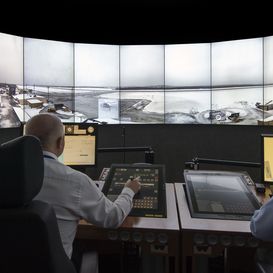
Country focus: Sweden - Saab AB
Commitment to trustworthy software innovation
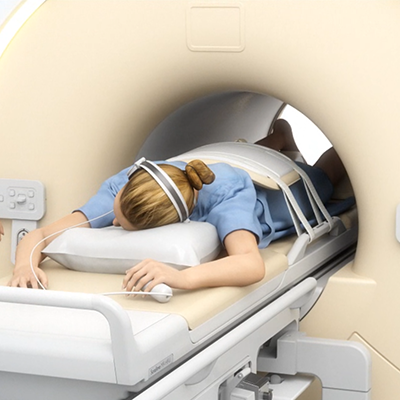
SoRTS Success story
A system of real-time systems for more effective healthcare

SotA BaaS
Semantic technologies and very traditional industry as Building
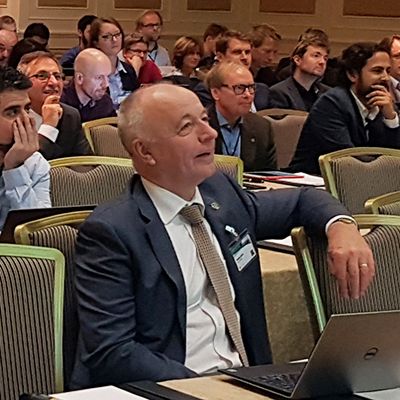
Community Talk with Fopke Klok
The Klok is ticking ... on life at ITEA ... and beyond

End user happiness FUSE-IT
Security of Smart Buildings: saving energy and lives!
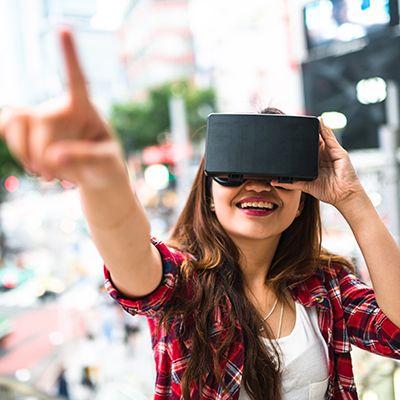
Metaverse1 Success Story
The missing link between the real and the virtual
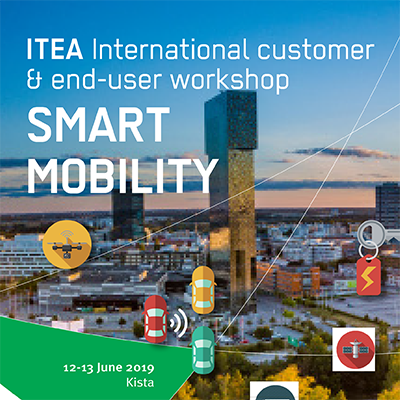
Customer workshop Smart Mobility
Help solve the challenges resulting from this ITEA customer workshop

SME spotlight IKANGAI
Your partner for mobile customer engagement

ITEA 3 Call 5 projects
Happiness, openness and trust

